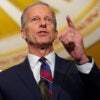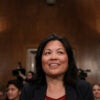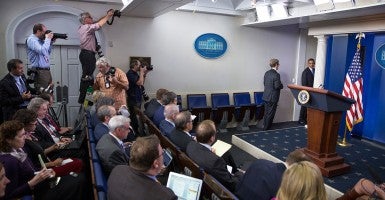It’s “historic.” A “landmark” breakthrough. By one stroke of the presidential pen, the tide of history has risen, never to recede again.
How many times has the press greeted a decision by President Obama with this breathless cry? It happened again last week when he reversed nearly 50 years of U.S. policy toward communist Cuba.
Columnist Eugene Robinson called the move a “historic opening.” But he and others should hold their applause until something positive happens in Cuba. For a presidential act to be truly historic, something besides U.S. policy has to change.
Case in point: Last year’s announcement that the U.S. once again would engage in direct nuclear talks with Iran met with great fanfare. George Stephanopoulos eagerly opened ABC’s “This Week” on Nov. 24, 2013, with: “Breaking overnight an historic deal a landmark path to freeze Iran’s nuclear program.” Yet there is still no breakthrough. The talks have been extended again so negotiators can keep talking. Meanwhile Iran continues to process nuclear fuel and is closer to acquiring a nuclear weapon.
That’s not historic. It’s just more of the same.
Then there’s the 2013 deal with Russia on Syria’s chemical weapons. When announced, you’d have thought we’d reached a new Promised Land of arms control. CNN’s story led with this: “Russia and the United States, in their third day of talks in Switzerland, said Saturday they have reached a groundbreaking deal on a framework to eliminate Syria’s chemical weapons.”
In reality, Syria wound up getting rid of some old chemical stocks it apparently could spare. But the deal did nothing to stop the carnage in Syria. The Huffington Post recently reported that at least 67,000 people have perished in Syria this year. What appeared to be a historic breakthrough merely enabled President Obama to climb down from his threat of bombing Syria.
What about Obama’s promise to eliminate all nuclear weapons? On his first overseas trip just weeks after taking office, that’s what he pledged to do. After developing his famous “global zero” policy on nuclear weapons, in 2010 he signed the New START treaty with Russia to reduce nuclear arsenals. As if on cue, the press’s history-making machinery clicked into gear. Mr. Stephanopoulos and his “Good Morning America” co-host, Robin Roberts, called it “landmark” and “historic.” The “Today” show’s Meredith Vieira and Matt Lauer hailed the “landmark treaty” as “a major move in [Obama’s] push for a nuclear-free world.”
What has happened since? The U.S. has indeed reduced the size of its nuclear arsenal, but Russia has modernized and grown its own. Moscow has openly violated the Reagan-era Intermediate-Range Nuclear Force agreement. And despite UN sanctions, North Korea, already a nuclear power, has conducted two additional nuclear tests and successfully launched a long-range ballistic missile. The world is still very far away from Obama’s — and Lauer’s — dream of a nuclear-free world.
Perhaps the best example of historical hype is the colossal failure of Obama’s 2009 “reset” policy with Russia, unveiled by Hillary Rodham Clinton with a mislabeled big red button. Since then, Russia has annexed Crimea and invaded eastern Ukraine. The “reset” has quietly slipped into the memory hole the administration and the press reserve for the policy failures they had once welcomed as a World Historical Event.
Something larger than sycophancy is going on. The president came to Washington with a grand progressive vision of transforming America and the world. Every clack of the historical gear moved in a progressive ideological direction, regardless of the actual outcome, and thus was deemed “historic” before anything had actually happened.
The problem is this: Obama keeps knocking on history’s door, but no one is answering. All the frontloaded credit he gets for his “bold” decisions covers up the fact that little or no positive change happens. If anything, we are slipping backwards.
That is not the “history” — excuse me, the “change” — Americans had hoped for.
Originally posted on the Washington Times.
































